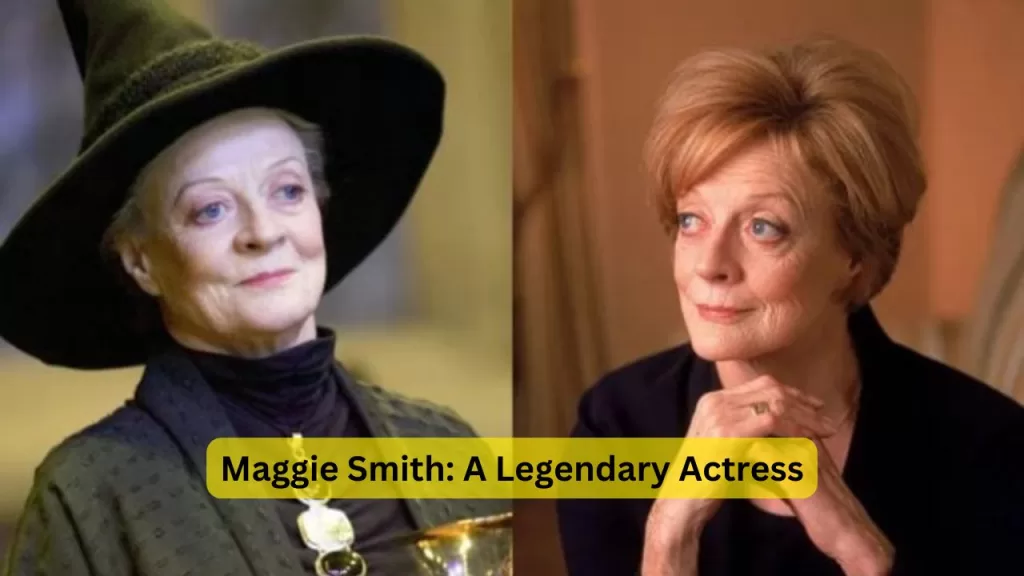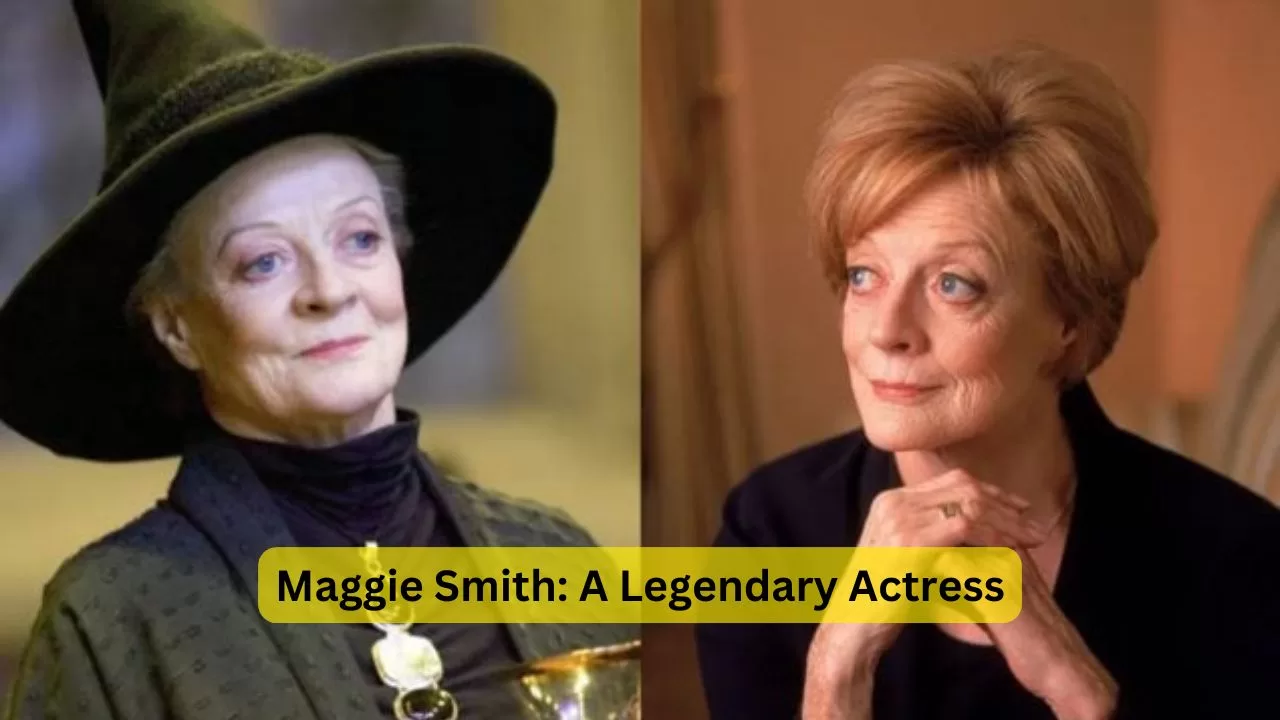
Maggie Smith is a name that commands respect and admiration in the world of entertainment. A versatile and enduring talent, she has graced both the stage and screen with her remarkable presence for more than six decades. Dame Maggie Smith has captivated audiences with her unforgettable roles in theatre, film, and television, making her one of the most revered and accomplished actresses of her time.
From her early days in British theatre to international stardom in films like The Prime of Miss Jean Brodie, A Room with a View, and the Harry Potter series, Maggie Smith’s career is a testament to her talent, resilience, and commitment to her craft. This article explores her early life and how she built a remarkable career that continues to inspire audiences worldwide.
Early Life and Background
Margaret Natalie Smith, better known as Maggie Smith, was born on December 28, 1934, in Ilford, Essex, England. She grew up in a family with strong academic roots—her father, Nathaniel Smith, was a pathologist and her mother, Margaret Hutton, was a secretary. When she was four years old, the family moved to Oxford, where her father had secured a teaching position at Oxford University. This move would significantly influence Maggie’s formative years, exposing her to the world of academia while allowing her creativity to flourish.
From an early age, Smith exhibited a passion for performing arts. Although her early schooling at Oxford High School for Girls didn’t directly involve theatre, her love for acting was undeniable. She eventually decided to pursue her dreams by enrolling in the Oxford Playhouse School, where she received her formal training. During this time, she developed her unique stage presence and acting style, which would become hallmarks of her career.
The Start of an Extraordinary Career
Early Theatre Work
Maggie Smith’s career began on stage, where she quickly gained recognition for her exceptional talent. After joining the Oxford University Dramatic Society, she debuted professionally in 1952 at the Oxford Playhouse. It didn’t take long for her to make her mark in the world of British theatre. Her early roles allowed her to explore a wide range of characters, and she was particularly adept at balancing both dramatic and comedic performances.
By the mid-1950s, Maggie had moved to the West End, London’s vibrant theatre scene. Her big break came when she was cast in Share My Lettuce, a musical revue, alongside Kenneth Williams. This marked the beginning of a long and fruitful career in theatre that would earn her critical acclaim and numerous awards.
Collaboration with Laurence Olivier and the National Theatre
One of the defining periods of Smith’s early career was her time with the National Theatre Company in the 1960s, under the leadership of Sir Laurence Olivier. Olivier, one of the greatest actors and directors of his time, saw great potential in Smith and cast her in a number of challenging roles.
Her performances during this time were instrumental in shaping her reputation as a serious actress. Notably, her portrayal of Desdemona in Othello (1965) opposite Olivier’s Othello was widely praised. The film adaptation of the play later earned her an Academy Award nomination for Best Supporting Actress. This collaboration with Olivier helped Smith sharpen her craft and develop the deep emotional range that would define many of her future roles.
Breakthrough in Film: The Prime of Miss Jean Brodie
While Maggie Smith was already a well-established name in British theatre, it was her role in the 1969 film The Prime of Miss Jean Brodie that catapulted her to international fame. In this film, Smith played the titular character, a fiercely independent and controversial teacher at an all-girls school in Scotland. Her nuanced portrayal of Jean Brodie, a woman whose influence over her students leads to devastating consequences, won her the Academy Award for Best Actress.
This role was significant not only because of the critical acclaim it received but also because it demonstrated Smith’s ability to dominate the screen with the same power and charisma she displayed on stage. Her performance in The Prime of Miss Jean Brodie remains one of the most iconic in cinematic history, and it opened the doors to a variety of roles that showcased her versatility.
A Respected Career in Film
Following her Academy Award win, Maggie Smith continued to take on a variety of challenging roles in film. In the 1970s, she appeared in a series of successful films that showcased her range as an actress, including Travels with My Aunt (1972), for which she received another Academy Award nomination, and California Suite (1978), which earned her a second Academy Award—this time for Best Supporting Actress.
During this period, she also worked on more intimate films such as A Room with a View (1985) and The Lonely Passion of Judith Hearne (1987), both of which were critically acclaimed and highlighted her ability to deliver emotionally complex performances. Smith’s work in these films earned her several BAFTA awards, further cementing her place as one of Britain’s finest actresses.
Television Success: Downton Abbey
In addition to her prolific film and theatre work, Maggie Smith found enormous success in television, most notably for her role as Violet Crawley, the Dowager Countess of Grantham, in the internationally acclaimed series Downton Abbey. Her portrayal of the sharp-tongued and aristocratic matriarch won her widespread praise and multiple awards, including three Primetime Emmy Awards.
The character of the Dowager Countess became a cultural icon, thanks in large part to Smith’s brilliant comedic timing and her ability to deliver biting one-liners with impeccable grace. Downton Abbey introduced her to a new generation of fans, further expanding her already vast audience.
Global Recognition: The Harry Potter Series
For many younger viewers, Maggie Smith is best known for her portrayal of Professor Minerva McGonagall in the Harry Potter film series. Beginning with Harry Potter and the Philosopher’s Stone in 2001, Smith embodied the character of McGonagall, bringing both strength and compassion to the role of the strict but kind-hearted professor at Hogwarts School of Witchcraft and Wizardry.
Her work in the Harry Potter films introduced her to a new generation of fans and added yet another iconic role to her already impressive resume. Despite facing health challenges during the production of the later films, Smith continued to deliver standout performances, further cementing her legacy as a true screen legend.
Awards and Honors
Over the course of her career, Maggie Smith has received numerous accolades, including:
- Two Academy Awards
- Five BAFTA Awards
- Three Golden Globe Awards
- Four Primetime Emmy Awards
- A Tony Award
In 1990, she was made a Dame Commander of the Order of the British Empire (DBE) for her contributions to the arts, and in 2014, she was honored with a special BAFTA Fellowship in recognition of her outstanding career in film and television.
Conclusion
Maggie Smith’s life and career are nothing short of extraordinary. From her early beginnings in British theatre to her globally recognized roles in Downton Abbey and Harry Potter, she has captivated audiences with her extraordinary talent, wit, and dedication to her craft. Her ability to seamlessly transition between stage and screen, drama and comedy, makes her one of the most versatile and celebrated actresses of her time.
With a career spanning over 60 years, Maggie Smith has left an indelible mark on the world of acting, and her legacy will continue to inspire future generations of performers.
